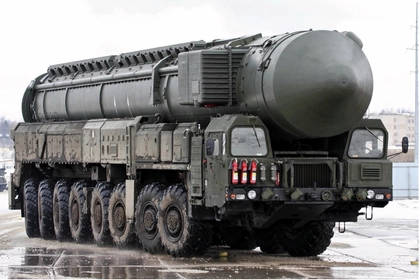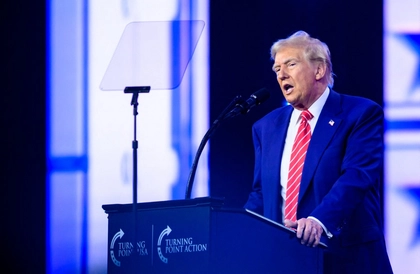When Ukraine finally gained its independence from the Soviet Union in 1991, it held the world’s third largest nuclear arsenal - an estimated 1,900 strategic warheads, 176 intercontinental ballistic missiles (ICBMs), 44 strategic bombers and almost 3,000 tactical nuclear warheads.
The build-up to nuclear disarmament
JOIN US ON TELEGRAM
Follow our coverage of the war on the @Kyivpost_official.
Prior to that Ukraine’s pre-independence movement wanted Kyiv to sign-up to the nuclear non-proliferation treaty (NPT), perhaps to gain international approval and support. The commitment was included in its Declaration of Sovereignty on July 16, 1990. In it, Ukraine pledged “not to accept, produce, or acquire nuclear weapons.” The decision was not unanimous as some felt, with what now seems like prescience, that they should keep the weapons as a deterrent to future Russian aggression.
In 1991 the dissolution of the Soviet Union became formalized and was replaced by the Commonwealth of Independent States (CIS). In December the CIS nations signed the “Minsk Agreement on Strategic Forces,” which was the approval that Russia would have control of the Soviet nuclear arsenal in its entirety.
The only exception was for the three nations on whose territory the weapons were still held, Belarus, Kazakhstan and Ukraine, retained a veto on their use until they were dismantled with a target date of the end of 1994.
This was followed by 1992’s Lisbon Protocol by which the three nations agreed to return all the weapons to Russia and to sign up to the NPT and The Strategic Arms Reduction Treaty (START); for which they were given up to seven years to complete the process.

‘We’ll All Die as One for the Tsar’ – Man Fears Putin Turning Russia into North Korea
Despite these commitments the mood in Ukraine through 1992 -1993 was increasingly moving towards retention of the nuclear weapons it held. Kyiv began to put administrative management processes for its nuclear forces in place and claimed ownership of the warheads.
Under pressure from the US, who offered financial incentives to give up the weapons, Ukraine agreed in late April 1993, they would give up 40 per cent of its warheads but only if a further 13 preconditions were added to START, which included additional security assurances from Russia and the US, funding for dismantlement, and compensation for the loss of nuclear material
This sparked three-way discussions between Ukraine and the two superpowers over Ukrainian denuclearization, which led in January 1994 to the so-called “Trilateral Statement.” By this Ukraine committed to full nuclear disarmament agreeing to transfer all warheads to Russia, in exchange for economic support to dismantle weapons and infrastructure, financial compensation for the loss of the nuclear material and security assurances from the US and Russia. Ukraine ratified START on Feb. 3, 1994, but declined acceding to the NPT without further security assurances.
The Budapest Memorandum on Security Assurances
It was agreed to there was a need to further formalize the security commitments between Ukraine, the US and Russia, and also for Belarus and Kazakhstan. Along with the UK it was planned to encapsulate these security assurances against the threat or use of force against the territory or political independence of the three by way of the Budapest Memorandum on Security Assurances which was signed on Dec. 5, 1994.
It promised to respect the sovereignty and existing borders of Ukraine in return for which, Kyiv officially acceded to the NPT as a non-nuclear weapon state and ratified START along with the US, Russia, Belarus and Kazakhstan bringing the treaty into force.
By June 1996, Ukraine had transferred all nuclear warheads to Russia for destruction and had closed and demilitarized all of its strategic nuclear bases. Equipment for the breaking down of the remaining ballistic missile motors and strategic bombers was put into place.
In 2009 Russia and the US released a joint statement, confirming that the security assurances made in the 1994 Budapest Memorandum would remain valid as START expired.
However, five years later Russian President Vladimir Putin reneged on the assurances it gave under Budapest with the illegal annexation of Crimea and occupation of Ukrainian territories which was further tossed aside with the 2022 full-scale invasion. It should be no surprise that Kyiv is reluctant to accept any future security assurances from Moscow.
You can also highlight the text and press Ctrl + Enter










